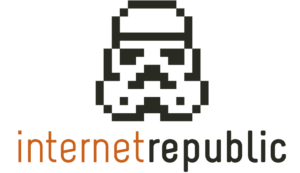
How to identify the search intent of your keywords
If we want to be successful in your search engine optimization strategy, it is essential to recognize what information a user expects to find when he or she searches. Understanding this, we can satisfy the user’s search in the best possible way.
In this process, Google plays a fundamental role since it is the search engine that classifies and orders the information to show the results that best suit the user’s needs.
In order to give the best possible user experience, the search engine has been working over the years to improve its algorithm and try to understand what they expect to find when people type something into the search box.
Therefore, it is no longer enough to define a series of keywords and include them on our pages. We must focus on the logistics of a query with a global sense.
How does Google know what a user expects to find when they make a query?
For this purpose, Google can draw on previous experience with similar queries, create connections and rely on that data to predict what the user is looking for and choose results that best answer the query.
The incorporation of artificial intelligence to the algorithm is important for a better understanding of the content of a website and for relating concepts or factors such as the CTR or bounce rate, to try to understand the user’s behavior on Google itself. These factors are especially relevant since they are very useful for carrying out the arrangement of the page results and meeting users’ expectations.
Clearly, this process is very complex, and Google does not reveal how it is carried out. What is certain is that this forces us to change our perspective on keyword strategy and focus on content relevance when we are faced with a web optimization process or the definition of new content.
But… How do we know what a person expects to find?
There is a very simple yet effective way to find out: by analysing the contents that Google ranks for each keyword. As SEOs and/or webmasters we should obtain the search intention for all the searches that we want to position with the objective of facing with the security of the process of relevant content creation.
For example, imagine you have a casino. Any keyword related to the games would be interesting to work on the website. Let’s analyze the case of the slot game “jumanji”. If we carry out the query “jumanji game” on Google, being more specific, we find the following:



If we look at the SERPs we see how after the video and image modules, the first organic results are related to board games and therefore, Google understands that the user is generally interested in board games instead of video games or slots.
But… What do we do if instead of analyzing the search intention of a keyword we have a keyword research of hundreds of keywords?
In that case, we must turn to massive analysis solutions. For this, at Internet República we use very simple solutions like the one I share with you.
What do we need?
- Web scraping tool
- Google Sheets
How does it work?
- Complete the rankings tab with the Google scraped results. The ID and success fields are obtained from the tool we use although the value of each cell is not important for our goal. The rest of the fields are very intuitive:
search.q: Search query
result.organic_results.position: result position
result.organic_results.title: title of the result snippet
result.organic_results.link: url of the result shown by Google
result.organic_results.domain: domain to which the displayed result belongs

2. Classify domains according to sector: the main advantage of this solution is that, even if it is manual, we can make our own classification of domains adapted to the sector we are working in. So if our client, for example, is a bank, we might be interested in classifying the domains into: comparison sites, banks, other entities… through a simple URL or title regex.
 Img. Domain type
Img. Domain type
3. Check what kind of results Google is showing for each keyword.

Img.Keyword – Comparison sites – Banks – Blogs
Depending on the type of results we will structure the contents or define a strategy of keywords in one way or another. To improve conversion and maximize benefits it is especially important to define what type of keywords to attack and with what contents.
Ready to learn what people are searching for?
Artículos relacionados
Agustin Díaz Serrano
Latest posts by Agustin Díaz Serrano (see all)
- How to identify the search intent of your keywords - 15 August, 2020
- Is Benzema the best striker? What Google says about the player - 9 January, 2018






